Yellow fever spreads to DR Congo, kills 21
- Published
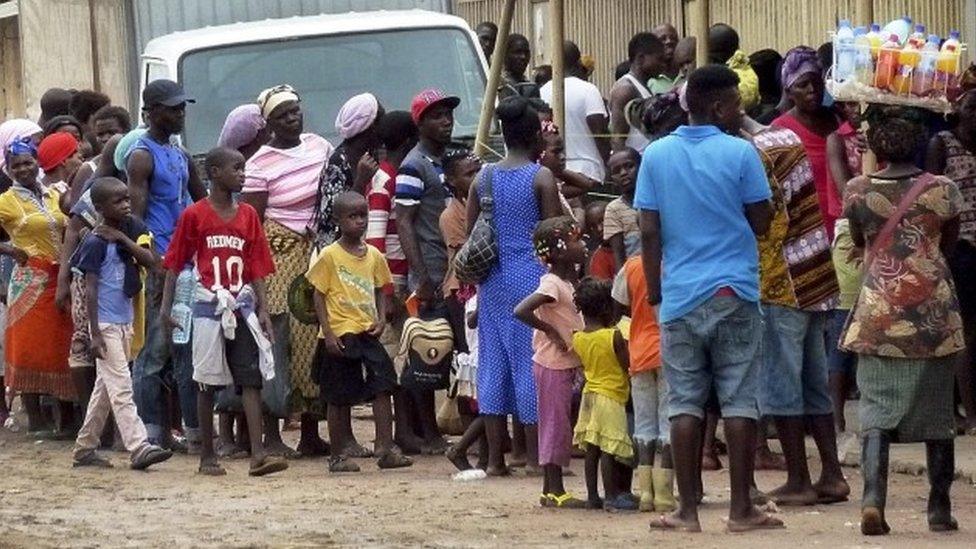
Yellow fever has taken a heavy toll in Angola
An outbreak of yellow fever has killed 21 people in the Democratic Republic of Congo, the World Health Organization (WHO) says, linking some cases to an outbreak in neighbouring Angola.
In a statement,, external the WHO said the deaths had occurred in January to March, with 151 suspected cases recorded.
There was, it said, a "serious risk of further spread of the disease" in DRC.
The acute, mosquito-borne viral disease has killed 225 people in Angola and infected about 1,600 there.
The WHO said the DRC health authorities had set up a national committee to respond to the outbreak, including "screening and sanitary controls" on the country's borders.
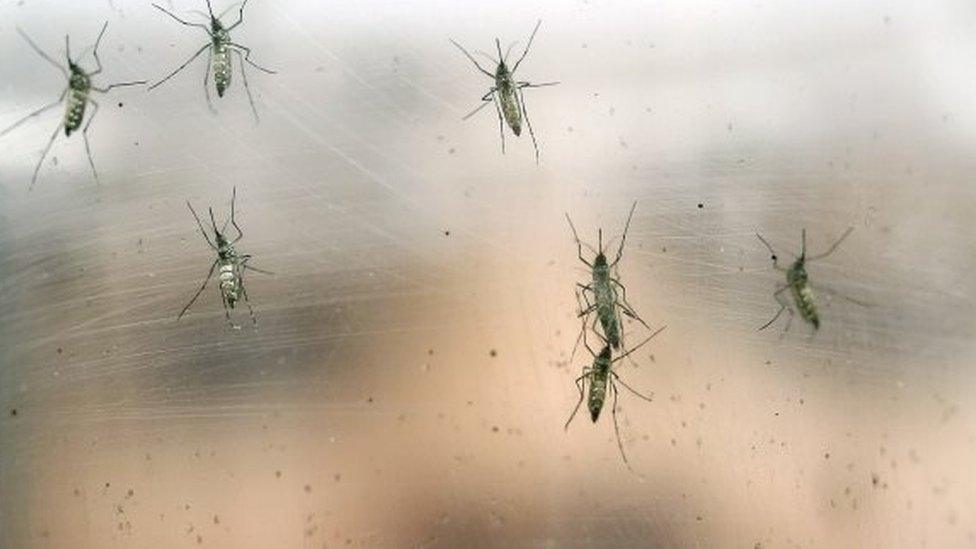
It is thought that Aedes aegypti mosquitoes are key yellow fever carriers
People travelling to Angola will now be vaccinated against the disease, it added.
The WHO statement says that the DRC's health ministry has in addition activated a contingency plan which includes more community engagement to fight the disease and better training of health workers.
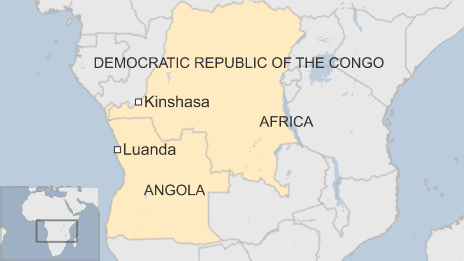
Yellow fever is a virus that can cause bleeding, jaundice and kidney failure, It is spread by mosquitoes, usually the Aedes aegypti mosquito, the same species that spreads the Zika virus.
It is endemic in tropical regions of Africa and South America.
A vaccine can prevent infection but there is no specific drug treatment for people who are infected.
- Published28 January 2016
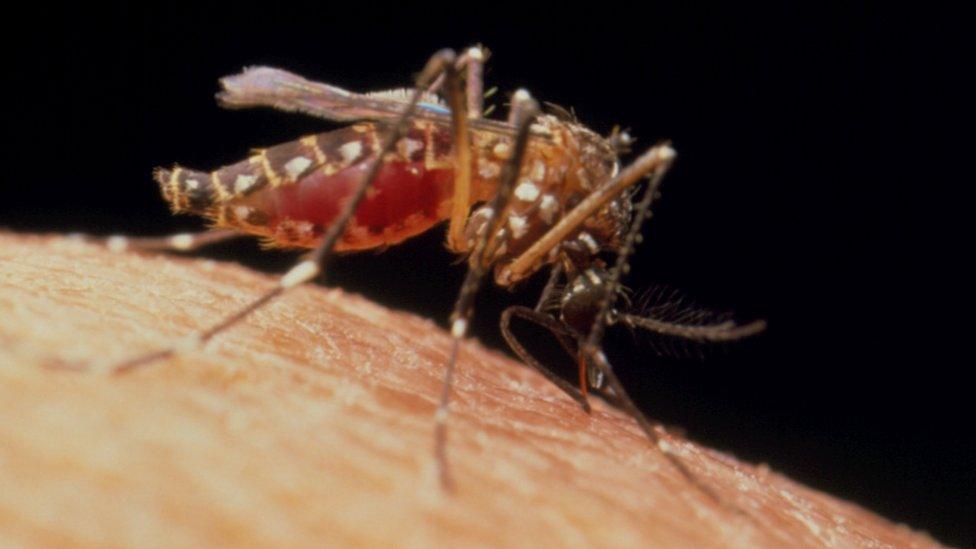
- Published21 November 2014

- Published18 December 2012
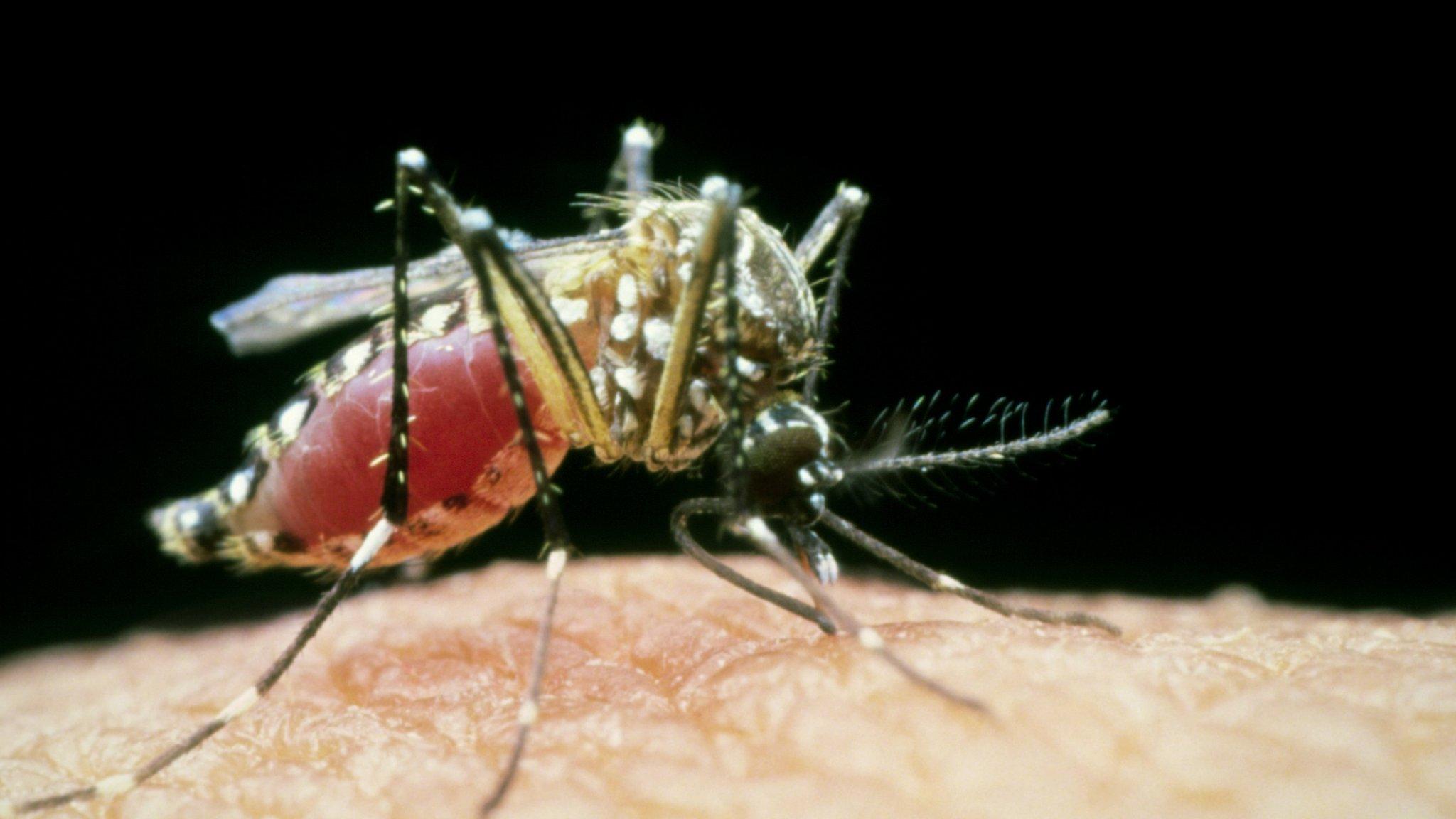
- Published27 December 2010